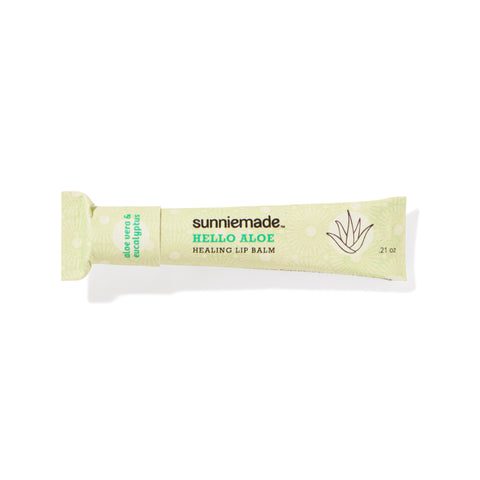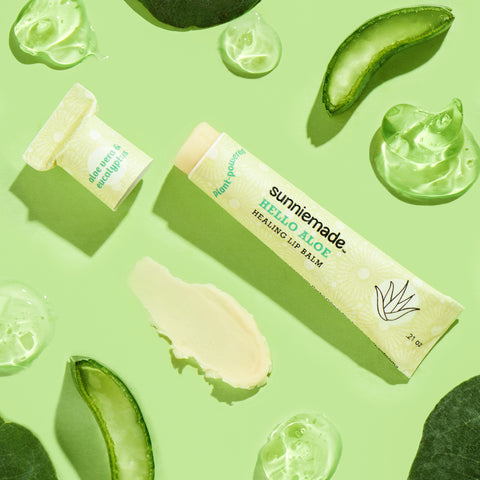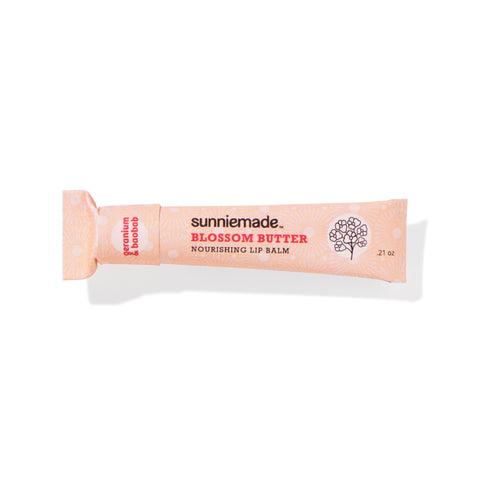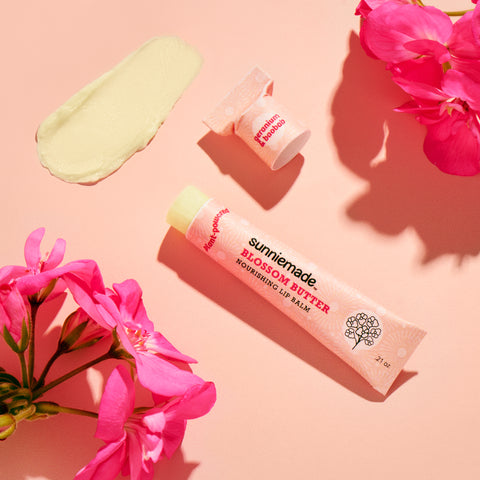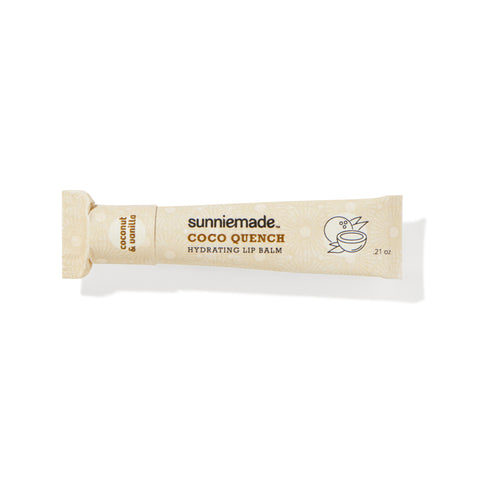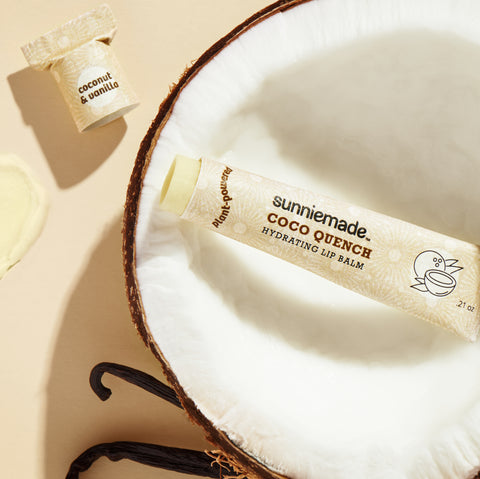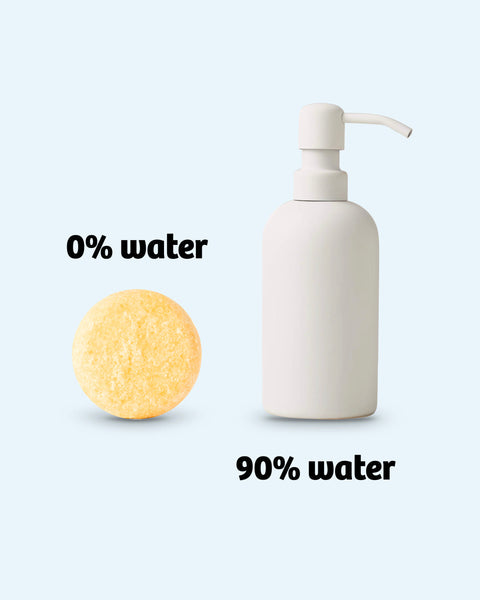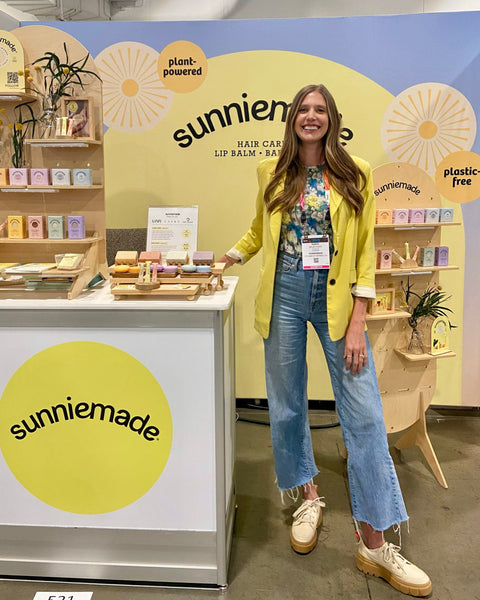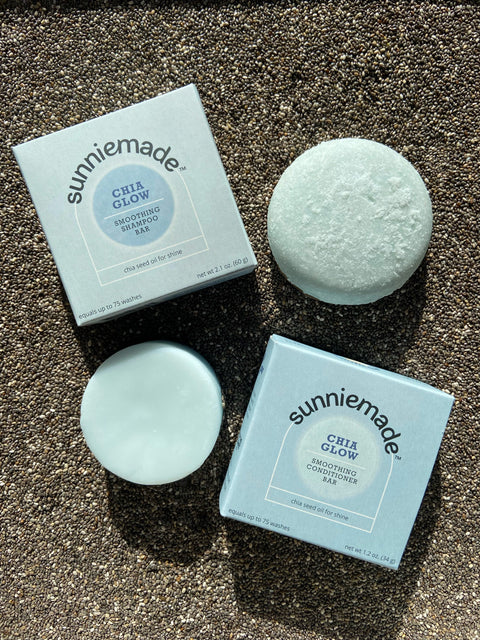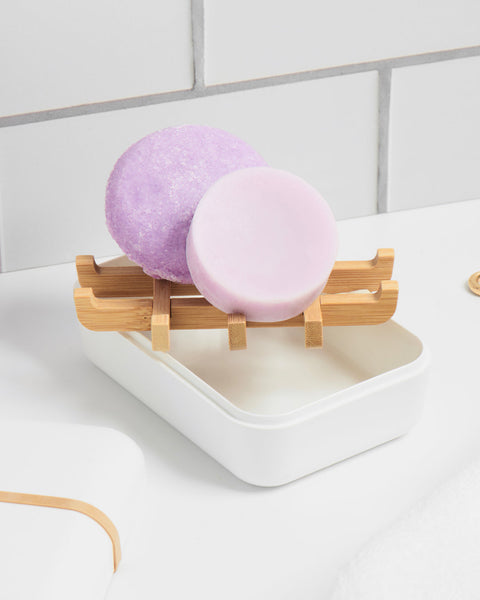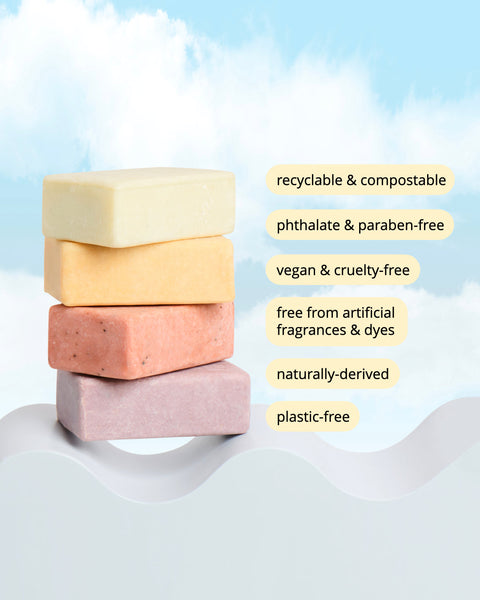Lip Balm Without Plastic Pollution: A Sustainable Shift to Fiber-Based Packaging
We partnered with Plastic Pollution Coalition to co-author this blog post. You can find the original post on their site here.
Key Takeaways:
- Plastic lip balm packaging contributes to global plastic pollution due to low recycling rates and its inability to break down in the environment.
- Plastic lip balm packaging poses a threat to human health due to exposure to toxic chemicals.
- Sunniemade’s innovative lip balm paper squeeze tubes offer a sustainable and safe solution.
- Consumer demand for fiber-based solutions like this one can create positive change for the better. Sunniemade’s lip balms are available for purchase here.
Plastic pollution is pervasive—it reaches from the deepest ocean trenches to the highest mountain peaks and inside of our bodies, threatening Earth and human health, wildlife, and the climate. While many associate plastic pollution with items like single-use plastic bottles or grocery bags, the beauty and personal care industry also significantly contributes to this crisis, particularly with products packaged in plastic, like lip balm.
At least a billion plastic lip balm tubes are rapidly used and discarded globally per year— another category of widely used products that may fly under the radar, but have a significant cumulative impact on the planet. However, innovative, fiber-based, plastic-free cosmetics packaging alternatives are emerging, offering promising solutions.
The Harmful Impacts of Plastic Lip Care Packaging

Environmental Toll
It is estimated that more than 200 million lip care tubes are discarded in the U.S. alone each year. Some estimates place the global total at more than 1 billion tubes annually. In fact, 81% of women and 39% of men use lip balm or lipstick products. Most of the packaging ends up in landfills, incinerators, or the environment—the inevitable fate for most plastics.
Lip balm tubes are typically made from polypropylene (PP), which is extremely difficult for recycling centers to sort, has very few reprocessing facilities in the U.S., and has very low end-market demand. Although PP is theoretically recyclable and is accepted by about half of recycling centers, more often than not it is disposed of rather than recycled because most facilities don’t have the equipment or economic incentive to sort and process them. As a result, PP has very low reprocessing rates (<5%) and is not legally considered recyclable. And as we know, plastics were never designed to be recycled.
Unlike organic matter, plastic doesn’t biodegrade. Instead, it breaks up into micro- and nano-plastic particles that persist in the environment, infiltrating soil, waterways, and the food web. These particles have been found in clouds, drinking water, freshwaters and oceans, marine and land animals, soils, and throughout our human bodies, from our bloodstreams to our brains. Wildlife often mistake plastic fragments for food, leading to internal blockages, malnutrition, and death.
Hidden Health Hazards
Environmental and human health go hand in hand. People ingest, inhale, and absorb plastic particles through their skin. Plastic chemicals and particles have been linked to autoimmune disorders, cancer, heart disease, infertility, other serious health problems, and even death. The use of plastics puts us in direct contact with these dangerous chemicals and particles.
Many conventional lip balm tubes contain phthalates, PFAS, and other endocrine-disrupting chemicals (EDCs) that can migrate into the product and be absorbed through the lips and skin.
There are more than 16,000 chemicals in plastics, at least 4,200 of which are already known to be hazardous to human and environmental health. These include known carcinogens and EDCs. Long-term exposure to these substances has also been associated with reproductive toxicity, hormonal imbalance, immune dysfunction, and neurological effects.
Given how frequently and closely lip balm is applied, the potential for chemical exposure through ingestion or absorption is significant.
Fiber-Based Packaging: A Sustainable Alternative

One of the most promising solutions to plastic pollution from lip-care products and other cosmetics lies in fiber-based packaging, such as biodegradable paper tubes. These materials offer a significantly improved environmental profile:
-
Compostable and recyclable, breaking down naturally without leaving harmful substances in the environment.
-
Marine biodegradable, meaning they won’t contribute to microplastic pollution even if they enter aquatic environments.
-
Made from plants, not plastic, reducing reliance on fossil fuels, which are used to make plastic.
- No toxic chemicals commonly found in plastic, making it safer for both human health and ecosystems.
While fiber packaging has clear health and environmental benefits, the challenge has been matching plastic packaging’s effectiveness and durability. Enter Sunniemade’s paper squeeze tube.
A Breakthrough: Sunniemade’s Paper Squeeze Tube

Sunniemade, a Business Member of Plastic Pollution Coalition, is pioneering a new era of lip care with its innovative paper squeeze tube—the first of its kind to combine functionality with sustainability.
Unlike traditional tubes that rely on petroleum-based plastics or rigid paper push tubes that can be difficult to use, Sunniemade’s packaging is:

-
Soft, flexible, and squeezable, offering the same ease of use as a toothpaste tube, without the plastic pollution.
-
Durable and functional, ensuring the lip balm is easy to apply and the packaging endures for the life of the product.
-
Plastic-free and non-toxic, ensuring no harmful chemicals leach into the product, your body, or the environment.
-
Recyclable, compostable, and biodegradable, made from renewable, plant-based materials.
- Sustainably sourced, with deforestation-free paper made from responsibly managed, FSC-certified forests.
These tubes are the result of meticulous design and a clear mission: to create high-performance, low-impact packaging for a product that the majority of people use daily and repeatedly.
Your Purchasing Power Can Help Create Systems Change

Consumers hold immense power in shaping the future of packaging. By choosing plastic-free products such as those in fiber-based packaging, shoppers send a message to companies that sustainability is no longer optional—it’s expected.
Brands like Sunniemade are already proving that safer, smarter packaging is possible. But broader change requires industry-wide shifts. Retailers and manufacturers can accelerate the transition by reducing plastic in their supply chains, investing in compostable, reusable, and truly recyclable alternatives. Collaborating with coalitions and policy advocates can help raise standards.
Lip balm tubes may be small, but they represent a significant opportunity to reduce plastic waste and protect human health. Every discarded plastic tube adds to a growing global crisis of pollution and toxic exposure. Fiber-based packaging is a practical, scalable solution that avoids harmful chemicals, supports compostability, and dramatically reduces the product’s environmental footprint. Sunniemade’s paper squeeze tube isn’t just a lip balm container—it’s a blueprint for how personal care packaging can be reimagined to meet the needs of people and the planet alike. If just 10% of the world’s lip care products were fiber-based, we would prevent 100 million plastic tubes from polluting our world every year.
For conscious consumers looking to make a difference, Sunniemade lip balms are a good place to start.


